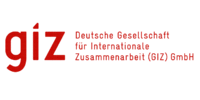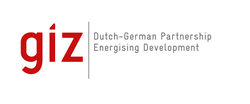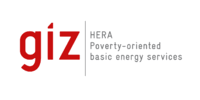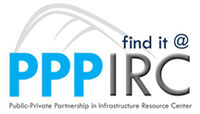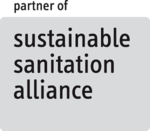Difference between revisions of "Energypedia - Donors and Partners"
From energypedia
***** (***** | *****) m |
***** (***** | *****) m |
||
| Line 11: | Line 11: | ||
{| cellspacing="5" cellpadding="5" border="0" style="width: 100%" | {| cellspacing="5" cellpadding="5" border="0" style="width: 100%" | ||
|- | |- | ||
| − | | [[File:Logo GIZ.gif|left|200px|GIZ|alt=Logo GIZ.gif|link=https://www.giz.de/]] | + | | style="width: 269px" | [[File:Logo GIZ.gif|left|200px|GIZ|alt=Logo GIZ.gif|link=https://www.giz.de/]] |
| − | | style=" | + | | style="width: 189px" | [[File:Energypedia Consult.png|none|98px|alt=Energypedia Consult.png]] |
| − | | [[File:BSH Logo.PNG|left|150px|BSH|alt=BSH|link==]] | + | | |
| + | [[File:BSH Logo.PNG|left|150px|BSH|alt=BSH|link==]] | ||
|} | |} | ||
<div><br/> | <div><br/> | ||
Revision as of 06:59, 26 February 2015
Energypedia is grateful to the following funders, partners and supporters for helping us to continue working towards our vision of free knowledge exchange and mutual learning on sustainable energy issues.
Funding
Cooperation Partners
| The Deutsche Gesellschaft für Internationale Zusammenarbeit (GIZ) GmbH is a federal enterprise which supports the German Government in achieving its objectives in the field of international cooperation for sustainable development. It opertaes in more than 130 countries in the fields of economic development and employment promotion; governance and democracy; security, reconstruction, peacebuilding and civil conflict transformation; food security, health and basic education; and environmental protection, resource conservation and climate change mitigation. The services delivered by the GIZ draw on a wealth of regional and technical expertise and tried and tested management know-how. | |
| The GIZ programme HERA - Poverty-Oriented Basic Energy Services promotes access to renewable energy and their sustainable and efficient use. On behalf of the Federal Ministry for Economic Cooperation and Development (BMZ) GIZ has supported the dissemination of energy-saving technology and adapted energy supply solutions for 30 years. With its help 2.5 million efficient stoves have been successfully produced and sold in the last six years alone. These stoves save up to 60 per cent of the biomass that would otherwise be required and produce virtually no smoke. Small domestic solar systems, biogas and micro hydropower can also help meet the basic energy needs of households, social institutions and small businesses. | |
| The Energy Sector Management Assistance Program (ESMAP) is a global knowledge and technical assistance program administered by the World Bank. Its mission is to assist low- and middle-income countries to increase know-how and institutional capacity to achieve environmentally sustainable energy solutions for poverty reduction and economic growth. Since its inception in 1983, ESMAP has supported more than 800 energy-sector activities that promote poverty reduction, economic growth and low carbon development in over 100 countries. | |
| The International Renewable Energy Agency (IRENA) is an intergovernmental organisation which promotes the widespread adoption and sustainable use of all forms of renewable energy worldwide. The IRENA Renewable Energy Learning Partnership (IRELP) was formed to increase awareness of, and broaden access to, educational opportunities and resources in the fast-growing sector. Through its website, www.irena.org/irelp, IRELP offers free access to a global database of more than 3000 renewable energy courses, webinars, training guides and internship opportunities. IRELP also highlights skills gaps and labour shortages, helps to adapt education and training, and raises the profile of renewable energy as an attractive career option. | |
| The Public-Private Partnership in Infrastructure Resource Center for Contracts, Laws and Regulation (PPPIRC) is a World Bank resource containing sample public-private partnership (PPP) agreements and concessions, checklists and sample clauses, terms of reference, risk matrices, standard bidding documents developed by government agencies and sample PPP and sector legislation and regulation. It is designed for government officials, project managers and lawyers involved in PPP infrastructure projects and will help you to address contractual and legal issues related to infrastructure legal reform and PPP projects. | |
| www.reegle.infois a content-rich clean energy portal provided by REEEPand REN21that is focused on unlocking clean energy information and data. Besides its clean energy search, which covers more than 2000 high quality websites and databases it provides country energy profilesdrawn from various reliable open data sources. Aclean energy and climate change glossaryand thesaurus gives clear definitions and maps related terms. Its free reegle Tagging APIhelps other clean energy websites by automatically tagging their content for searchability, and suggests related web resources. | |
| Leonardo ENERGY - The Global Community for Sustainable Energy Professionals The Leonardo Energy initiative (LE) unites professionals from over the world dedicated to electrical power and sustainable energy. It is managed by the European Copper Institute in close cooperation with its partners. LE was established from growing understanding that copper is essential in achieving sustainability. Its high electrical conductivity is a favourable attribute for the construction of renewable energy systems and the manufacturing of energy efficient motors, transformers, and cables. The principal aim of LE is to accelerate the transition to a sustainable energy economy. LE provides free education, training, and the comprehensive exchange of expertise. It is also active in various standardization committees and provides regulatory advice. | |
| The Microenergy Systems Research Group at the Technical University of Berlin promotes research in the field of Microenergy Systems s a multi-disciplinary research group, that devotes itself to the analysis of the planning, the potential assessment, the design of products and services, the implementation, the use and the impacts of small scale energy systems in structurally weak areas. Their approach focuses on concepts for a decentralized energy supply on household or community level, where production and consumption of energy are spatially interlinked. Going beyond the technical artifacts, the approach looks at energy systems as socio-technical systems embedded in a social, political, economical and ecological environment. Their focal point is the user – meaning that research questions are directly or indirectly derived from users’ needs and the question how to address them with appropriate energy solutions. | |
| The Pedagogical University/Universidade Pedagógica is one of Mozambique 's principal universities. It's primary mission is the of training teachers and boards of education with higher education, providing them with scientific and pedagogical-didactic tools they need to deliver a high quality education in the education sector. | |
| Open Energy Information (OpenEI) is a knowledge sharing online community dedicated to connecting people with the latest energy information and data. By providing access to energy-related information via geographic discovery, visualizations and apps, and topic-oriented gateways, OpenEI can help you find the answers you need to make better, more informed decisions. | |
| Practical Action is an international NGO that uses technology to challenge poverty in developing countries. Practical Action works directly in in foru regions of the developing world - Latin America, East Africa, Southern Africa and South Asia with particular concentration on Peru, Kenya, Sudan, Zimbabwe, Sri Lanka and Nepal. In these countries, Practical Action works with poor communities to develop appropriate technology in renewable energy, food production, food processing, sustainable transport, water, sanitation, small enterprise development, building and shelter, climate change adaptation and disaster risk reduction. Lessons from Practical Action’s grassroots experience are spread through consultancy services, publishing activities, education resources, advocacy and an international technical enquiries service, Practical Answers. | |
| The University of Hohenheim (Stuttgart, Germany), Intitute of Agricultural Engineering / Agricultural Engineering in the Tropics and Subtropics is working on technologies for improved efficiency of water and energy use. Research on water-saving irrigation strategies and renewable energy supply systems are major activities. As post harvest processes such as drying are especially energy intensive, this forms a special research focus. Fundamental research is performed in an interdisciplinary context with complementary disciplines. To support knowledge transfer to practice, results are verified and adjusted in applied research. Continuous feedback from practice application guarantees that fundamental research of the group is addressing relevant and exigent problems. | |
| The Renewables Academy AG (RENAC) is one of the leading international providers for renewable energy training and energy efficiency education. Since its founding in January 2008, over 3,000 participants from over 110 nations worldwide have benefited from RENACs expertise in the technology, financing, management and market development of alternative energy. | |
| The Sustainable Sanitation Alliance (SuSanA) is an open international alliance with members who share a common mission on sustainable sanitation and are dedicated to understanding viable and sustainable sanitation solutions. It links on the ground experiences with an engaged community made up of practicioners, policy makers, researchers, and academics from different levels with the aim of promoting innovation and best practices in policy, programming, and implementation . |
Support in Kind
| Microsoft |

